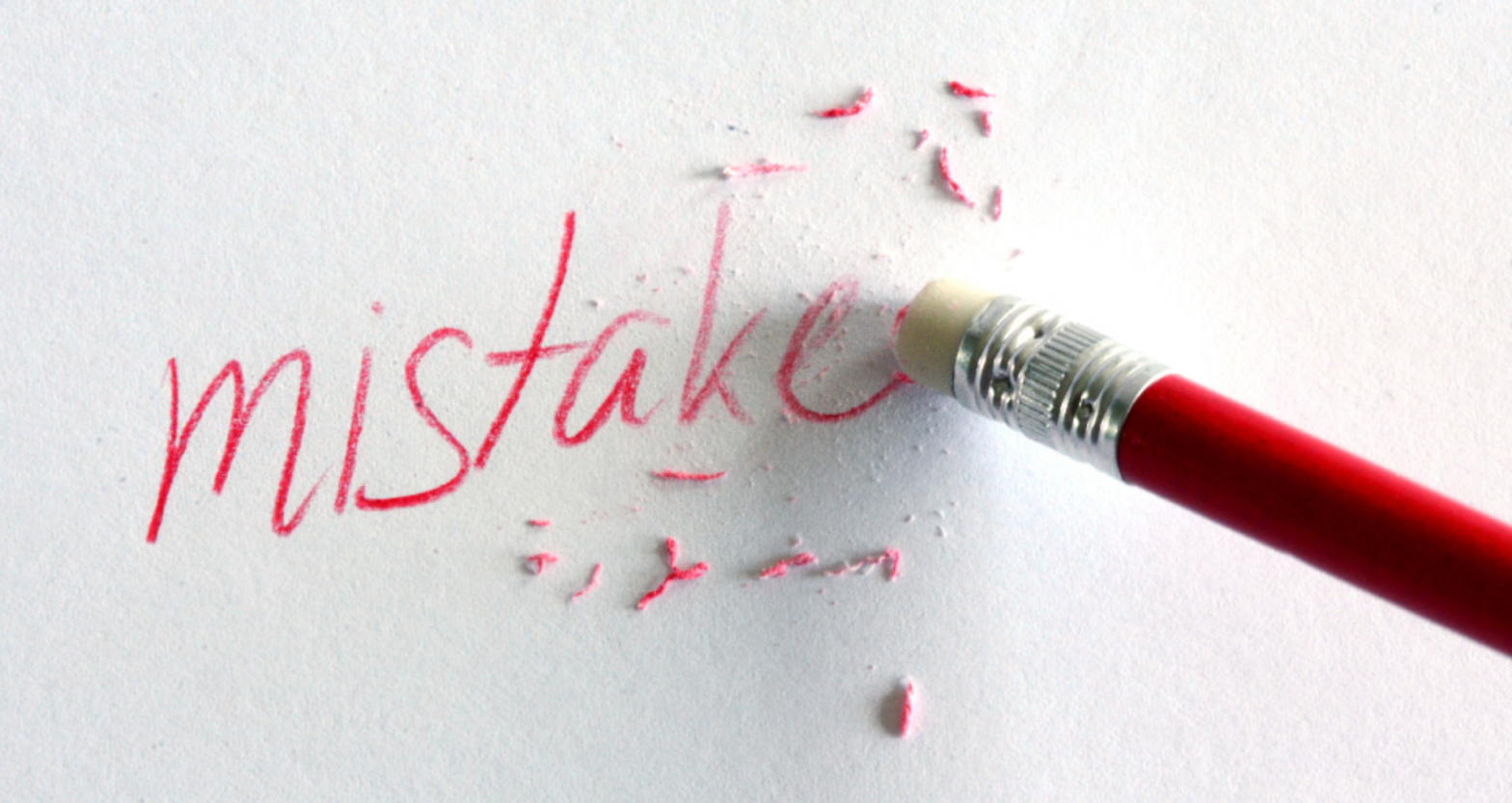Most people try to avoid making mistakes. In fact, many people experience considerable stress and anxiety around avoiding mistakes. We may labor and fret over this fear, which tends to block and paralyze us. Surprisingly, we don’t typically pause and consider exactly what we mean by this word–mistake.
Generally, a mistake is a decision, action or lack of action that we come to regret. We label this a mistake because it may cause us pain, struggle or loss. Most often, it takes us well out of our comfort zone and introduces uncertainty. We typically don’t care for the consequences that have befallen us and this is what we refer to as a mistake. The irony is that these occurrences we try to avoid are often exactly what we need to experience.
Many times I have heard people speak of their failed marriages as mistakes as they culminate in divorce. Yet, these upheavals provide the opportunities to grow and reveal deeper truths about ourselves. Through this painful experience there is a potential for deep transformation. The insights borne out of what we call mistakes are necessary for our psychological, emotional and personal growth. They are an intrinsic part of our learning process. The avoidance of them severely curtails our life experience.
Interested in bespoke marriage and relationship counseling from Mel Schwartz? Reach out!
As one door closes–another opens
This fear around mistakes impacts not only our relationship with self and others, but our jobs and careers as well. The mistakes made in the workplace may result in financial loss or even termination. This undoubtedly causes havoc and and distress. But as surely as a door closes, another opens. The goal is to open to seeing that opening. The objective is to not stay mired in the loss, but to search for the new opportunity. It is surely there if we free our minds to get beyond the mistake.
The avoidance of pain and at times, loss or sadness limits our life experience. Yet, these travails are necessary to propel us toward the greater richness of an unfolding life. Our beliefs about mistakes and failure constrain us from moving into a deeper and richer relationship with life. The anxiety around this imprisons us and keeps us stuck in a very confined comfort zone of the known. Yet, it is the movement into the unknown that catalyzes our personal evolution.
A mistake is an event, the full benefit of which we have not yet come to realize
The fear of making a mistake is utterly paralyzing. Who gets to be the judge of what is a mistake? From a spiritual perspective it might be argued that there is really no such thing as a mistake (other than the obvious e.g. driving drunk and killing someone). The very notion of mistake produces a reaction that induces conformity with the status quo. In this state we tend to dishonor our intuition and we lose our inner voice as we choose the safer path.
At such times we defer to the voices and opinions of others. These are the voices that instruct us about correct choices. The expression, they say, speaks to this problem. I often wonder, who exactly they are? When we live in such a manner our lives suffer and we lose the creative, playful spirit that more suits our engagement of life. The concept of mistake is tied to the larger notion of failure.
I would suggest that there really is no such thing as failure. It is a made up construct, having no independent reality. Imagine watching a toddler struggling to take their first steps, only to fall. How ridiculous would it be to proclaim that they failed? They didn’t fail–they simply haven’t yet succeeded! Why do we have that patience for children and yet victimize ourselves so readily? It is altogether natural to struggle toward what we are trying to achieve. To call this failure is to abort the very process of learning. This is devastatingly destructive.
What we call a mistake or failure is simply a snapshot that we choose to freeze in time. Prior to becoming president, Harry Truman owned a men’s clothing store, which fell into bankruptcy. If his career ended at that point, he might have been imprinted with the notion of failure. Fortunately for him, he continued his life process and his life further unfolded.
If you are excited about new experiences and opportunities for growth, you’ll be less likely to be overly sensitive to the issue of mistakes. On the other hand, if you’re reluctant about such movement you likely live in fear of mistakes.
There is never a single correct choice or decision. Constructs such as mistakes and failure block us from the rewarding complexity of life’s possibilities. Liberating ourselves from this fear enable us to actualize our potentiality.




